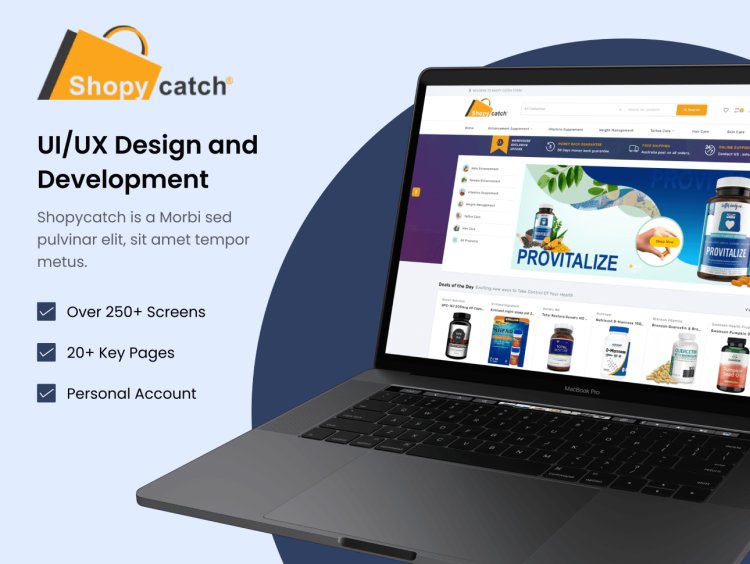What Are the Best Shopify Tactics for Industrial Equipment Sales?
Discover how Shopify simplifies industrial equipment sales with custom themes, SEO, and advanced tech. Learn strategies for online success today!

In today’s fast-evolving digital landscape, even traditionally offline industries like industrial equipment sales are finding a home online. The rise of e-commerce has made it easier for businesses to connect with buyers, streamline transactions, and expand their reach. If you’re in the industrial equipment sector, adopting e-commerce strategies is no longer optional—it’s essential.
For companies seeking to take their sales online, Shopify has emerged as one of the most effective platforms. Its user-friendly interface, extensive customization options, and seamless integrations make it particularly well-suited to handle the complexities of selling industrial equipment online.
E-Commerce in the Industrial Equipment Sector
The industrial equipment sector is embracing e-commerce at an unprecedented pace. From B2B transactions involving heavy machinery to B2C sales of specialized tools, the benefits of going digital are undeniable.

Growing Trend of E-Commerce Adoption
-
B2B Benefits: E-commerce allows industrial companies to provide detailed product catalogs, flexible payment options, and real-time inventory updates, making purchasing more efficient for business clients.
-
B2C Opportunities: For companies selling directly to end-users, e-commerce simplifies order placement, payment, and delivery, creating a smooth buying experience.
Benefits of an Online Presence
-
Expanded customer reach: A well-optimized online store can attract buyers from across the globe.
-
Enhanced customer experience: With detailed product information and seamless navigation, customers can make informed decisions.
-
Improved efficiency: Automation of inventory management and order processing saves time and reduces errors.
Why Shopify is the Ideal Solution
When it comes to choosing an e-commerce platform, Shopify stands out as a top choice for industrial equipment sales. It provides the tools needed to navigate the unique challenges of this sector while offering unparalleled flexibility and scalability.
User-Friendly Interface
Shopify’s intuitive interface ensures that even sellers with limited technical expertise can set up and manage their stores efficiently. This is particularly important for industrial equipment companies that may not have in-house IT teams.
Customization and Scalability
Shopify offers a range of customizable themes that can be tailored to suit the specific needs of industrial buyers. Moreover, its scalability ensures that as your business grows, your platform can handle increased traffic, larger product catalogs, and more complex operations.

Integration Capabilities
Shopify integrates seamlessly with third-party tools essential for industrial equipment sales, such as ERP systems, inventory management software, and shipping solutions. This compatibility makes it easy to manage everything from procurement to delivery.
To make the most of these features, it’s crucial to work with experienced Shopify experts. If you’re looking to set up or enhance your Shopify store, hire Shopify developer India to leverage their expertise and ensure your e-commerce platform is optimized for success.
Key Shopify Development Strategies
To maximize the potential of Shopify for industrial equipment sales, companies must adopt targeted development strategies. Here’s how:
1. Custom Theme Development
Your website’s design plays a crucial role in creating a positive impression on buyers.
-
Use a professional, industry-specific design that reflects your brand’s expertise.
-
Ensure the layout is user-friendly, with intuitive navigation and a responsive design for seamless browsing across devices.
-
Highlight key features such as detailed product categories, search filters, and technical specifications.
2. Product Information Management (PIM)
Industrial equipment buyers require detailed and accurate product information to make purchasing decisions.
-
Use Shopify’s features to create comprehensive product pages with specifications, manuals, and high-quality images.
-
Include downloadable datasheets, instructional videos, and compatibility details.
-
Implement advanced search filters to help customers quickly find products that meet their requirements.
3. Search Engine Optimization (SEO)
To increase organic traffic to your Shopify business, SEO is crucial.
-
Optimize product titles, descriptions, and URLs with relevant keywords such as “hire Shopify developer India” and “Shopify development company India.”
-
Use alt text for images and include schema markup to enhance search engine visibility.
-
Regularly update your blog with industry-relevant content to establish authority and improve rankings.
4. Integration of Advanced Technologies
Modern technologies can elevate the shopping experience:
-
Augmented Reality (AR): Allow customers to visualize how equipment will fit into their workspace.
-
3D Visualization: Provide interactive product views to showcase complex machinery.
-
AI-Driven Recommendations: Use AI to suggest related products or accessories based on customer preferences.
5. Mobile Optimization
Many buyers browse and shop on their mobile devices. Ensure your Shopify store is fully responsive, providing a seamless experience across smartphones and tablets. Features like mobile-friendly menus and quick-loading pages can significantly enhance user satisfaction.
Examples: Shopify Success in Industrial Equipment
Several industrial equipment companies have successfully implemented Shopify strategies to transform their sales processes.
Example 1: A Manufacturer of Heavy Machinery
This company partnered with a Shopify development company in India to create a customized online store. By leveraging Shopify’s PIM capabilities and integrating ERP software, they streamlined their inventory management and improved the customer experience. The result? A 40% increase in online sales within the first year.
Example 2: A Supplier of Precision Tools
To address the challenge of complex product specifications, this company worked with a developer to design a user-friendly Shopify store. Detailed product pages and 3D visualization tools helped customers make informed purchasing decisions, boosting conversion rates by 25%.
Content Disclaimer: The information provided is for general informational purposes only. The examples and statistics shared are meant to illustrate ideas and may vary based on specific circumstances.
Best Practices for Shopify Implementation
To make the most of Shopify for industrial equipment sales, it’s important to follow best practices:
Collaborating with Experienced Shopify Developers
-
Partnering with a Shopify development company India ensures your store is tailored to the unique needs of your industry.
-
Developers with expertise in industrial equipment can help integrate essential tools and create a design that resonates with your target audience.
-
When selecting a partner, look for proven experience, a portfolio of successful projects, and positive client reviews.
Ongoing Maintenance and Support
-
Regular updates and maintenance are crucial for optimal store performance.
-
Use analytics tools to monitor traffic, identify popular products, and uncover areas for improvement.
-
Consider engaging experts for ongoing support to address technical issues and implement new features.
Conclusion
E-commerce is transforming the industrial equipment sector, helping businesses grow and work more efficiently. Shopify is the perfect platform for this shift, offering easy-to-use tools, customization options, and powerful integrations.
By using strategies like custom themes, clear product information, and advanced tech like AR and AI, companies can create a smooth and professional online shopping experience.
At Binstellar Technologies Pvt. Ltd., we help businesses harness Shopify’s full potential. Whether starting a new store or improving an existing one, our team is here to support you. Take your industrial equipment sales online—contact us today to get started!
What's Your Reaction?



















.jpg)
